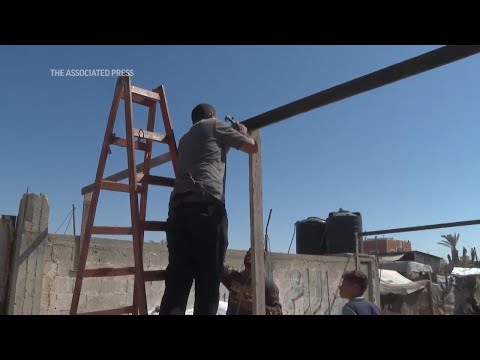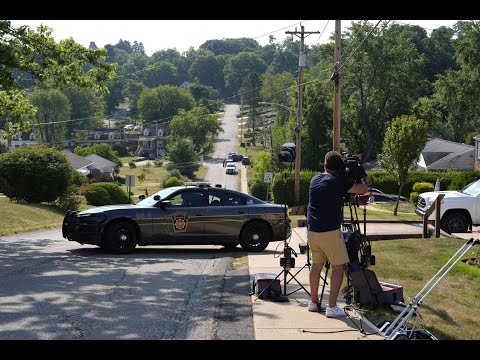(8 May 2024)
RESTRICTION SUMMARY:
ASSOCIATED PRESS
Muwasi camp, Gaza Strip – 7 May 2024
1. Children sitting on their family luggage
2. Men standing near their luggage
3. SOUNDBITE (Arabic) Taghreed Balaawi, displaced person:
++SOUNDBITE PARTLY COVERED WITH THE FOLLOWING SHOTS++
“We received a threat as they ordered us to leave the place. We left even though we did not want to leave our homes. Where are we going to go. As you can see, people don’t know what to do. It is humiliation. It is humiliation when people leave their homes. We didn’t want to leave but what can we do.”
4. People setting up tent
5. Various of people setting up tent
6. Family organizing their luggage
7. SOUNDBITE (Arabic) Khalil Ahmad, displaced person:
++SOUNDBITE STARTS ON THE PREVIOUS SHOT AND PARTLY COVERED WITH THE FOLLOWING SHOTS++
“They said we have to leave so we came here where there is nothing, no toilets or tents and my family is made up of 20 persons. Where can we go, where can we eat. Our life is miserable.”
8. People carrying their luggage and putting it in the tent
STORYLINE:
Thousands of people who fled eastern parts of the southern city of Rafah in the Gaza Strip to the relatively safe area of Muwasi further north are suffering harsh conditions and a lack of services.
The displaced are complaining that there are no tents to stay in and the area lacks food, drinking water and services, making the life of many harsh after they fled their homes following a call by the Israeli military to evacuate eastern parts of Rafah, along the border with Egypt.
The move north came as Israeli troops seized control of Gaza’s vital Rafah border crossing on Tuesday in what the White House described as a limited operation, as fears mount of a full-scale invasion of the southern city as talks with Hamas over a cease-fire and hostage release remain on a knife’s edge.
The U.N. warned of a potential collapse of the flow of aid to Palestinians from the closure of Rafah and the other main crossing into Gaza, Kerem Shalom, at a time when officials say northern Gaza is experiencing “full-blown famine.”
The Israeli foray overnight came after hours of whiplash in the now 7-month-old Israel-Hamas war, with the militant group saying Monday it accepted a cease-fire proposal that Israel insisted fell short of its own core demands.
The high-stakes diplomatic moves and military brinkmanship left a glimmer of hope alive — if only barely — for a deal to bring at least a pause in the war, which has killed more than 34,700 Palestinians, according to local health officials, and has devastated the Gaza Strip.
By capturing the Rafah crossing, Israel gained full control over the entry and exit of people and goods for the first time since it withdrew soldiers and settlers from Gaza in 2005, though it has long maintained a blockade of the coastal enclave in cooperation with Egypt.
Biden warned Israeli Prime Minister Benjamin Netanyahu again Monday against launching an invasion of the city after Israel ordered 100,000 Palestinians to evacuate from parts of Rafah. But Netanyahu’s far-right coalition partners have threatened to bring down his government if he calls off the offensive or makes too many concessions in cease-fire talks.
Israeli strikes and bombardment across Rafah overnight killed at least 23 Palestinians, including at least six women and five children, according to hospital records.
AP video shot by Mohammad Jahjouh, and produced by Wafaa Shurafa
===========================================================
Find out more about AP Archive: http://www.aparchive.com/HowWeWork
Twitter: https://twitter.com/AP_Archive
Facebook: https://www.facebook.com/APArchives
Instagram: https://www.instagram.com/APNews/
You can license this story through AP Archive: http://www.aparchive.com/metadata/youtube/d5cd99d941a74824a1e5c2b5b15c4ad5





